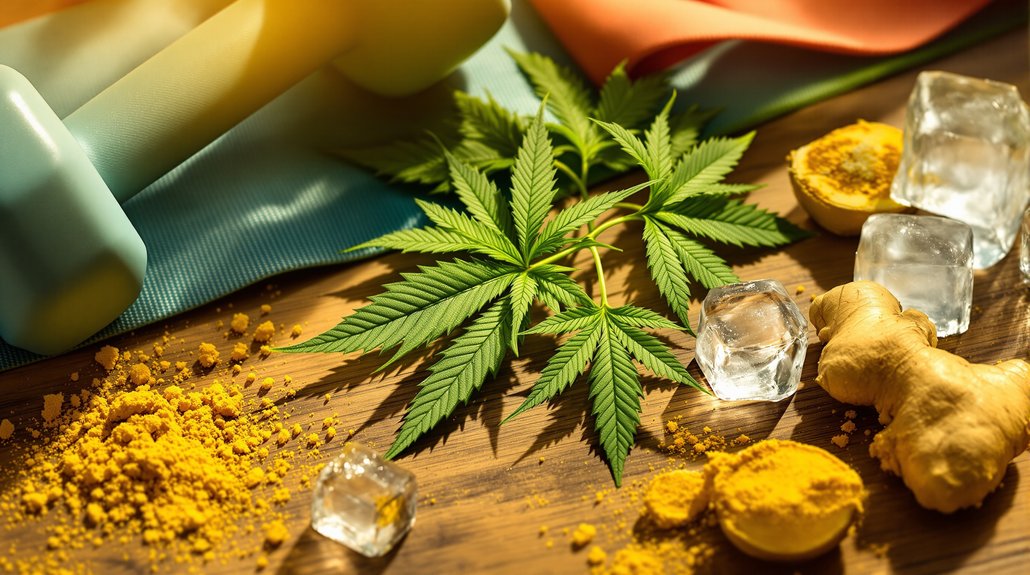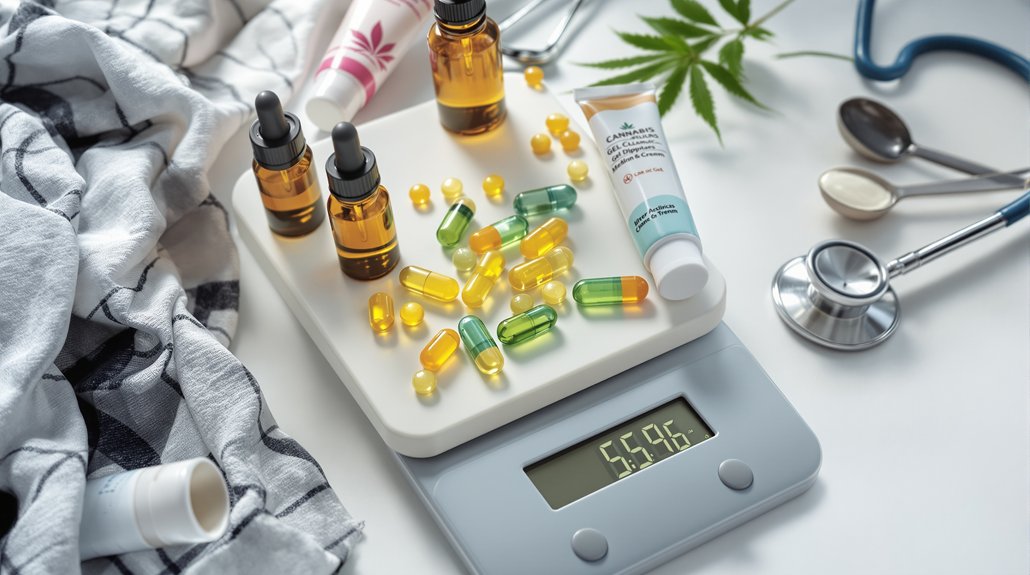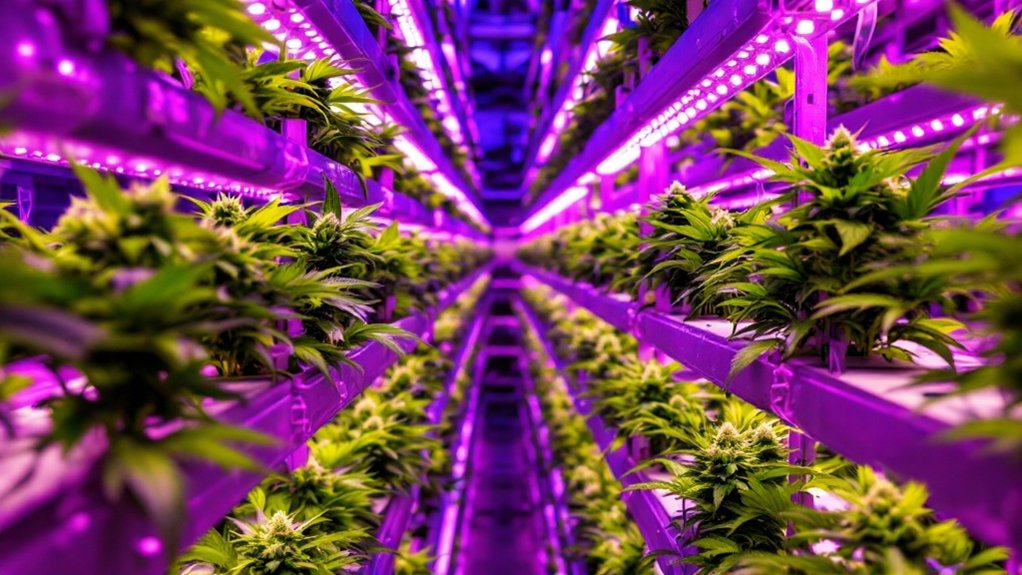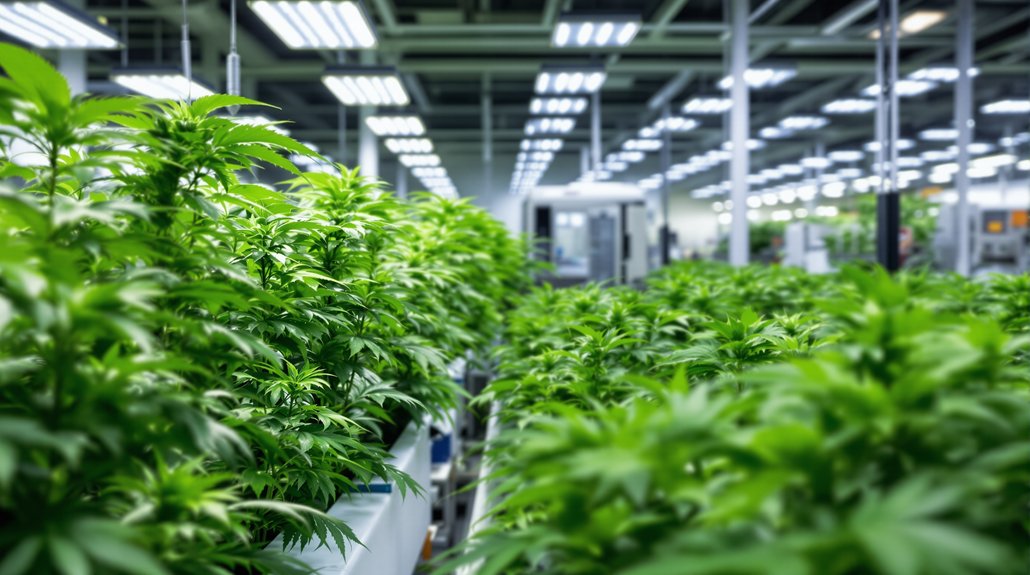Athletes worldwide are discovering what ancient civilizations knew centuries ago, cannabis offers legitimate recovery benefits beyond the stereotypes. Recent research reveals that cannabinoids like CBD and THC effectively reduce post-workout inflammation while accelerating muscle repair. Professional sports leagues are quietly revising their cannabis policies as evidence mounts. Sleep quality improves. Pain diminishes faster. Recovery times shrink. Yet the science behind these remarkable effects remains surprisingly complex, with individual responses varying dramatically based on factors most athletes never consider.
Cannabis as a Natural Anti-Inflammatory for Post-Workout Relief

While traditional anti-inflammatory medications dominate post-workout recovery protocols, cannabis is emerging as a compelling natural alternative that targets inflammation through entirely different biological pathways.
CBD and THC interact with the endocannabinoid system to suppress pro-inflammatory cytokine production, specifically reducing markers that fuel post-exercise inflammation.
THC binds CB1 and CB2 receptors to control inflammation, while CBG boosts beneficial anti-inflammatory cytokines like interleukin-10. Studies suggest THC and CBD work synergistically for enhanced anti-inflammatory benefits. Active individuals experiencing muscle soreness may benefit from low to moderate doses that enhance neuromuscular performance without impairing coordination.
The real magic happens with terpenes, beta-caryophyllene activates cannabinoid receptors independently, creating layered anti-inflammatory effects. Myrcene-rich strains provide additional relaxation benefits that complement the inflammation reduction process.
Exercise-induced microtears trigger inflammatory mediators causing swelling and heat in muscle tissues. Cannabinoids directly decrease this localized swelling through pathway inhibition, allowing faster muscle fiber repair and tissue healing after intense physical exertion.
Managing Athletic Pain and Delayed-Onset Muscle Soreness
Beyond addressing general inflammation, cannabis compounds demonstrate specific efficacy in managing the sharp, lingering discomfort that follows intense physical activity.
Research shows CBD markedly reduces self-reported muscle soreness within 24 to 72 hours post-exercise, with participants using 16.67mg oral doses recovering to baseline levels by 96 hours. This beats both placebo and control groups handily.
The mechanism centers on THC activating CB1 and CB2 receptors while CBD modulates cytokine production, effectively mimicking the body’s natural endocannabinoid system. Additionally, CBD and CBG work to boost IL-4 and IL-10 production, which are the body’s natural anti-inflammatory mediators that aid in muscle recovery.
Athletes surveyed report 93% agreement that CBD aids recovery, with 87% crediting THC for pain relief.
Peak soreness typically strikes 24-48 hours after training, making timing essential for intervention. Studies involving trained participants show particularly promising results when CBD is consumed immediately following strenuous exercise sessions.
Users should note that raw cannabis primarily contains non-psychoactive THCA which converts to THC through heating, offering different therapeutic benefits for recovery.
Enhanced Sleep Quality for Optimal Recovery

Quality sleep forms the cornerstone of athletic recovery, and mounting evidence suggests cannabis compounds may reveal faster, more restorative rest for athletes pushing physical limits.
THC and CBD demonstrate notable efficacy in reducing sleep onset latency, with chronic users reporting fewer insomnia symptoms compared to non-users. The compounds work differently, THC delivers stronger sedative effects while CBD provides regulatory influence without heavy drowsiness.
Clinical data reveals 93% of recovery-focused users believe CBD improves next-day restoration. THC increases total sleep duration but may reduce REM phases essential for cognitive recovery.
Both compounds downregulate inflammatory markers, supporting overnight tissue repair. Athletes frequently cite improved sleep continuity and reduced nighttime disturbances. Regular cannabis users often report lower CRP levels, indicating reduced systemic inflammation that can interfere with restorative sleep processes. Research shows cannabis may reduce inflammation and muscle soreness following intense aerobic exercise, further supporting the recovery process during sleep.
However, preparation variability poses compliance risks for competitive athletes under anti-doping regulations. Many recovery-focused athletes opt for THCA products since they offer anti-inflammatory benefits without the psychoactive effects when properly stored and not heated.
Stress Reduction and Mood Balance for Mental Recovery
Approximately 61% of surveyed athletes turn to cannabis not just for physical pain management, but report significant improvements in stress levels and emotional equilibrium during their recovery phases.
Athletes increasingly embrace cannabis as a dual-purpose tool for managing both physical discomfort and psychological wellness during recovery periods.
Cannabis influences the endocannabinoid system, the body’s natural network for regulating mood and stress responses. This physiological mechanism mirrors the runner’s high experienced through after intense exercise.
Laboratory analyses reveal subtle improvements in focus and reduced competitive anxiety following cannabis use. Athletes describe entering flow states characterized by heightened concentration and positive mood shifts.
CBD demonstrates particular promise for anxiety reduction during both training and recovery periods. Many athletes incorporate cannabis into post-workout routines, recognizing its potential benefits in inflammation and pain management.
Professional athlete testimonials consistently highlight increased workout enjoyment and decreased mental fatigue. Athletes often experiment to find effective cannabis solutions, with ownership in selection proving liberating for many users.
However, approximately 25% report recent usage, with adverse reactions affecting only a minority of users.
Safety Considerations and Individual Response Variations

While cannabis demonstrates measurable benefits for athletic recovery, the emerging research landscape reveals significant safety complexities that demand careful consideration.
Dosing remains a wild card, no standardized guidelines exist, and effects vary dramatically based on product type and delivery method. THC can impair coordination at higher doses, creating risks for athletes tackling complex training routines. Similar to CBN, the effects of cannabis compounds can take time to fully metabolize in the body.
Individual responses tell an interesting story. Surveys show 93% perceive CBD as helpful and 87% find THC beneficial, yet universal effects remain elusive.
Gender, body weight, and metabolism all influence cannabinoid processing. The plot thickens with drug interactions, CBD interferes with prescription medication metabolism through liver enzymes, potentially amplifying side effects when combined with NSAIDs or opioids. Cannabis topicals provide targeted relief for localized muscle soreness without systemic absorption concerns.
Athletes report quicker recovery times when incorporating cannabis into their therapeutic protocols compared to traditional methods alone.
Healthcare supervision becomes essential, and elite athletes under anti-doping requirements may consider the risks not worth it.









